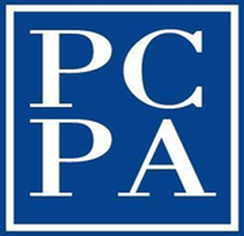ASSESSMENT AND BEHAVIORAL MANAGEMENT FOR ADHD AND DISRUPTIVE BEHAVIOR DISORDERS

ADHD is a neurobiological disorder that occurs in approximately 11% of youth, according to a 2016 study conducted by the Centers for Disease Control (CDC). Youth with ADHD may exhibit symptoms such as difficulty concentrating, difficulty following instructions, difficulty sitting still/remaining seated, and poor impulse control. Commonly, youth with ADHD also exhibit symptoms of disruptive behavior disorders (DBDs). Youth with disruptive behavior disorders may be uncooperative with authority figures, argue, have angry outbursts, deliberately annoy others, and exhibit rule-breaking behavior (e.g., lying, stealing). Examples of DBDs include oppositional defiant disorder (ODD), conduct disorder (CD), and unspecified disruptive behavior disorder. These behaviors tend to negatively impact functioning at home, school, and in social settings and strongly affect relationships with parents, teachers, and other caregivers. ADHD and DBDs can be diagnosed by a qualified professional who will do a thorough assessment of symptoms and determine treatment needs. Child and adolescent psychological assessments to help rule out ADHD and DBDs are available at our Chicago (Lakeview) and Northbrook locations.
Once properly diagnosed, common treatment goals for youth with ADHD and DBDs include reducing disruptive behaviors, improving compliance, and improving self-regulation. This is often accomplished through approaches such as behavioral parent training and parent-child interaction therapy (PCIT). The goals of these interventions are to create a structured environment with specific behavioral expectations, reinforce or encourage desirable behaviors (e.g., compliance, respect), and provide consequences (e.g., time out, loss of privilege) for disruptive behaviors. Research has shown that what occurs before a behavior (antecedents) and responses to a behavior (consequences) have the strongest effect on whether a behavior is maintained or discontinued. For example, when parents respond to desirable behaviors with praise and positive attention, children are likely to continue (or increase) those behaviors. When parents respond to disruptive behaviors with timeout or loss of privileges, children are less likely to continue those behaviors. It is important to note that behavior change occurs gradually over time and requires consistency and follow-through with intervention strategies. Our pediatric therapists will work in collaboration with your pediatrician to help you and your child overcome the negative impact of ADHD and DBDs!
Call or email today to find out more about Assessment and Behavioral Management for ADHD and Disruptive Behavior Disorders and the other services we provide!
Dr. Gardner is available to see patients ages 0-18 at our Streeterville location and over telehealth.
Once properly diagnosed, common treatment goals for youth with ADHD and DBDs include reducing disruptive behaviors, improving compliance, and improving self-regulation. This is often accomplished through approaches such as behavioral parent training and parent-child interaction therapy (PCIT). The goals of these interventions are to create a structured environment with specific behavioral expectations, reinforce or encourage desirable behaviors (e.g., compliance, respect), and provide consequences (e.g., time out, loss of privilege) for disruptive behaviors. Research has shown that what occurs before a behavior (antecedents) and responses to a behavior (consequences) have the strongest effect on whether a behavior is maintained or discontinued. For example, when parents respond to desirable behaviors with praise and positive attention, children are likely to continue (or increase) those behaviors. When parents respond to disruptive behaviors with timeout or loss of privileges, children are less likely to continue those behaviors. It is important to note that behavior change occurs gradually over time and requires consistency and follow-through with intervention strategies. Our pediatric therapists will work in collaboration with your pediatrician to help you and your child overcome the negative impact of ADHD and DBDs!
Call or email today to find out more about Assessment and Behavioral Management for ADHD and Disruptive Behavior Disorders and the other services we provide!
Dr. Gardner is available to see patients ages 0-18 at our Streeterville location and over telehealth.

